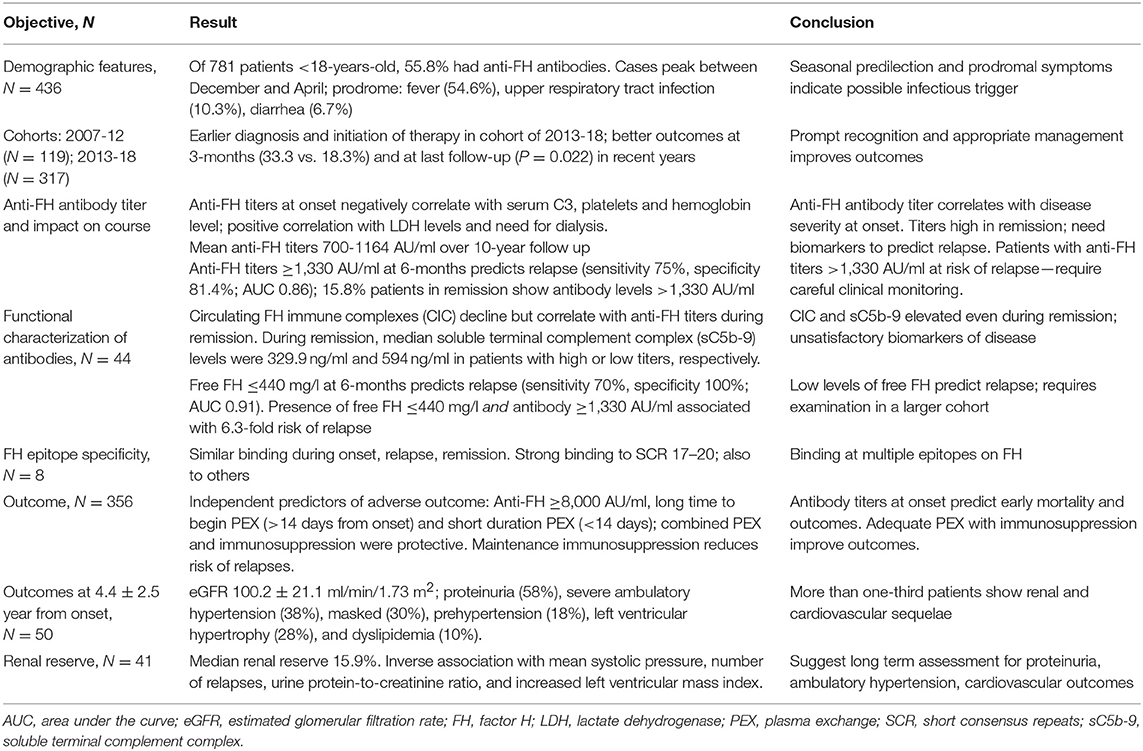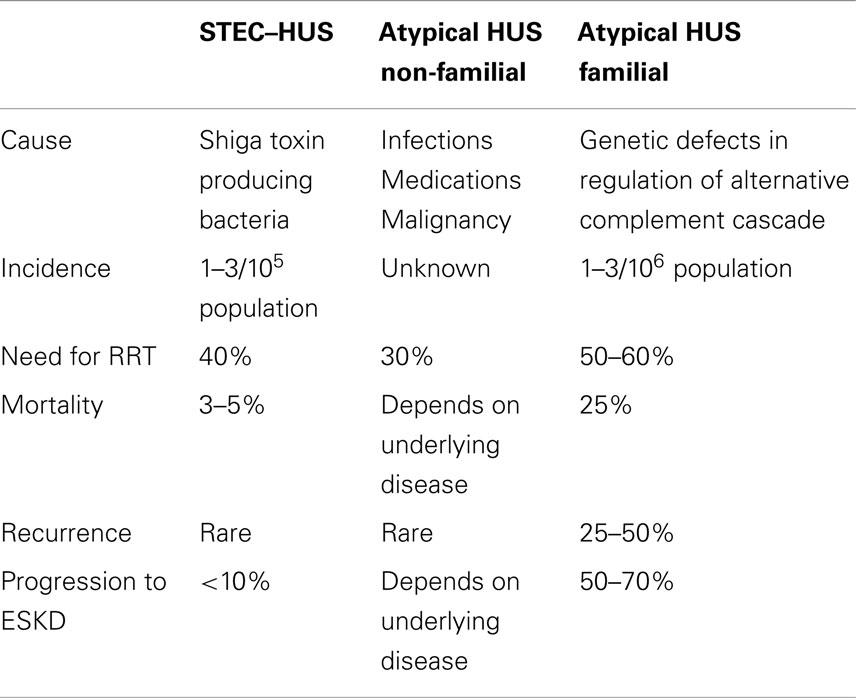Hemolytic Uremic Syndrome, often abbreviated as HUS, is a serious medical condition that affects the blood and kidneys. It is most commonly seen in young children but can occur at any age. This guide will provide a comprehensive overview of Hemolytic Uremic Syndrome, including its symptoms, causes, and available treatments. By understanding this condition better, patients and caregivers can make informed decisions about managing and treating it.

What is Hemolytic Uremic Syndrome?
Hemolytic Uremic Syndrome is a condition characterized by three main features: the destruction of red blood cells, a decrease in platelets, and kidney damage. These symptoms occur together and are often triggered by an infection or other underlying health issues. The syndrome can lead to severe complications if not treated promptly, making early detection crucial.
The Role of Red Blood Cells and Platelets
Red blood cells are responsible for carrying oxygen throughout the body. When these cells are destroyed prematurely, the body may struggle to deliver sufficient oxygen to tissues and organs. Platelets, on the other hand, are essential for blood clotting. A decrease in platelet count can lead to excessive bleeding or bruising. When both red blood cells and platelets are affected, the body becomes vulnerable to various complications.
Kidney Damage in Hemolytic Uremic Syndrome
The kidneys play a vital role in filtering waste products from the blood. In Hemolytic Uremic Syndrome, the small blood vessels in the kidneys become damaged, impairing their ability to function properly. This can result in a buildup of toxins in the body, leading to further health problems.
Symptoms of Hemolytic Uremic Syndrome
Recognizing the symptoms of Hemolytic Uremic Syndrome is critical for timely diagnosis and treatment. While symptoms may vary depending on the severity of the condition, there are some common signs to watch for.
Early Warning Signs
- Fatigue: Extreme tiredness is often one of the first symptoms noticed by patients.
- Pale Skin: A noticeable paleness in the skin may indicate anemia caused by the destruction of red blood cells.
- Shortness of Breath: Difficulty breathing can occur due to reduced oxygen levels in the blood.
Gastrointestinal Symptoms
- Diarrhea: Bloody diarrhea is a hallmark symptom of Hemolytic Uremic Syndrome, especially when the condition is linked to an infection.
- Vomiting: Persistent nausea and vomiting may accompany gastrointestinal distress.
- Abdominal Pain: Cramping or pain in the abdomen is another common symptom.
Kidney-Related Symptoms
- Decreased Urination: A significant reduction in urine output may signal kidney dysfunction.
- Swelling: Swelling in the legs, feet, or face can occur due to fluid retention.
- High Blood Pressure: Elevated blood pressure is often associated with kidney damage.
Bleeding and Bruising
- Unexplained Bruises: Easy bruising can occur due to low platelet counts.
- Bleeding Gums: Bleeding from the gums or other areas may be a sign of impaired blood clotting.
Causes of Hemolytic Uremic Syndrome
Hemolytic Uremic Syndrome can arise from a variety of causes, with infections being the most common trigger. Understanding the potential causes can help in identifying risk factors and preventing the condition.
Infections Leading to Hemolytic Uremic Syndrome
Certain bacterial infections, particularly those caused by Escherichia coli, are known to trigger Hemolytic Uremic Syndrome. These bacteria produce toxins that damage the lining of the intestines and enter the bloodstream, where they attack red blood cells and blood vessels in the kidneys.
Escherichia coli Infections
Escherichia coli, commonly referred to as E. coli, is a type of bacteria found in the digestive tract. While most strains are harmless, some produce a toxin called Shiga toxin, which can cause severe illness. Ingesting contaminated food or water is a common way people contract E. coli infections.
Other Infectious Causes
- Shigella Infections: Similar to E. coli, Shigella bacteria can produce toxins that lead to Hemolytic Uremic Syndrome.
- Streptococcus Pneumoniae: This bacterium, which causes pneumonia, can also trigger the syndrome in rare cases.
Non-Infectious Causes
While infections are the primary cause of Hemolytic Uremic Syndrome, there are other factors that can contribute to its development.
Genetic Factors
In some cases, Hemolytic Uremic Syndrome is caused by genetic mutations that affect the complement system, a part of the immune system. This form of the condition is known as atypical Hemolytic Uremic Syndrome and tends to run in families.
Medications and Pregnancy
- Certain Medications: Some drugs, such as chemotherapy agents, can increase the risk of developing Hemolytic Uremic Syndrome.
- Pregnancy: Complications during pregnancy, such as preeclampsia or HELLP syndrome, can also trigger the condition.
Autoimmune Disorders
In rare cases, autoimmune disorders can lead to Hemolytic Uremic Syndrome. These conditions cause the immune system to mistakenly attack healthy cells, including those in the blood and kidneys.
Treatments for Hemolytic Uremic Syndrome
Treatment for Hemolytic Uremic Syndrome focuses on addressing the underlying cause, managing symptoms, and supporting kidney function. Early intervention is key to improving outcomes and preventing complications.
Supportive Care
Supportive care is the foundation of treatment for Hemolytic Uremic Syndrome. This approach involves monitoring the patient’s condition closely and providing interventions as needed.
Fluid Replacement
Dehydration is a common issue in Hemolytic Uremic Syndrome, particularly when diarrhea is present. Intravenous fluids may be administered to maintain hydration and support kidney function.
Blood Transfusions
In cases where red blood cell counts are critically low, blood transfusions may be necessary to restore oxygen-carrying capacity. Platelet transfusions may also be required if bleeding becomes a concern.
Addressing Underlying Infections
If an infection is the cause of Hemolytic Uremic Syndrome, treating the infection is a priority. Antibiotics may be prescribed to eliminate bacteria, although their use is carefully considered, as some antibiotics can worsen the condition.
Antibiotic Use
While antibiotics are effective against many bacterial infections, they must be used cautiously in cases of Hemolytic Uremic Syndrome. Certain antibiotics can increase the production of toxins by bacteria, exacerbating the condition.
Dialysis for Kidney Support
When kidney function is severely impaired, dialysis may be required to remove waste products and excess fluids from the blood. This procedure can be life-saving in cases where the kidneys are unable to perform their functions adequately.
Types of Dialysis
- Hemodialysis: This method uses a machine to filter the blood outside the body.
- Peritoneal Dialysis: This involves using the lining of the abdomen to filter the blood.
Medications for Atypical Hemolytic Uremic Syndrome
For individuals with atypical Hemolytic Uremic Syndrome, medications that target the complement system may be prescribed. These drugs help regulate the immune response and prevent further damage to the blood and kidneys.
Eculizumab
Eculizumab is a medication specifically designed to treat atypical Hemolytic Uremic Syndrome. It works by inhibiting the complement system, reducing inflammation and protecting the kidneys.
Lifestyle and Dietary Adjustments
In addition to medical treatments, lifestyle and dietary changes can support recovery and improve overall health.
Dietary Recommendations
- Low-Sodium Diet: Reducing sodium intake can help manage high blood pressure and reduce strain on the kidneys.
- Hydration: Staying well-hydrated is essential for maintaining kidney function.
Avoiding Triggers
Patients with a history of Hemolytic Uremic Syndrome should take precautions to avoid triggers, such as consuming undercooked meat or unpasteurized dairy products, which can harbor harmful bacteria.
Prognosis and Long-Term Outlook
The prognosis for individuals with Hemolytic Uremic Syndrome varies depending on the severity of the condition and the timeliness of treatment. Many patients recover fully with proper care, while others may experience long-term kidney damage or require ongoing medical management.
Factors Influencing Recovery
- Age: Young children tend to recover more quickly than adults.
- Underlying Health Conditions: Patients with pre-existing health issues may face additional challenges during recovery.
- Timeliness of Treatment: Early intervention significantly improves outcomes.
Monitoring for Complications
Regular follow-up appointments are essential to monitor kidney function and detect any complications early. Blood tests, urine tests, and imaging studies may be used to assess the patient’s progress.
Emotional and Psychological Support
Living with Hemolytic Uremic Syndrome can be emotionally challenging for patients and their families. Counseling and support groups can provide valuable resources for coping with the condition and its impact on daily life.





